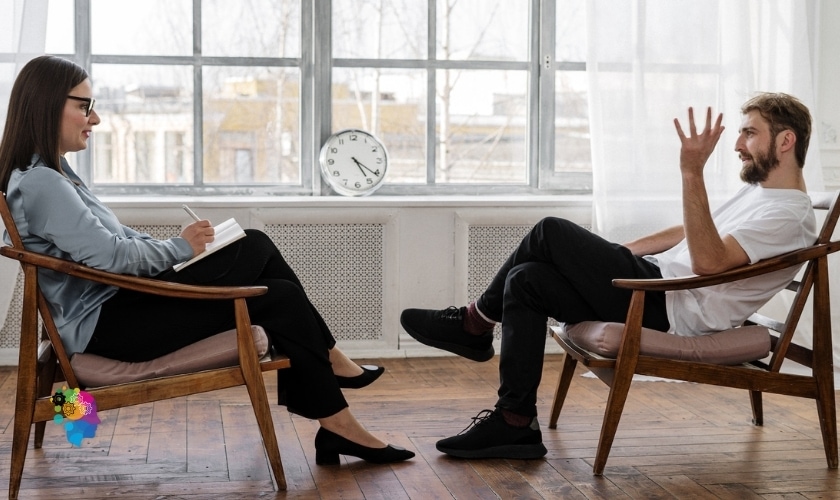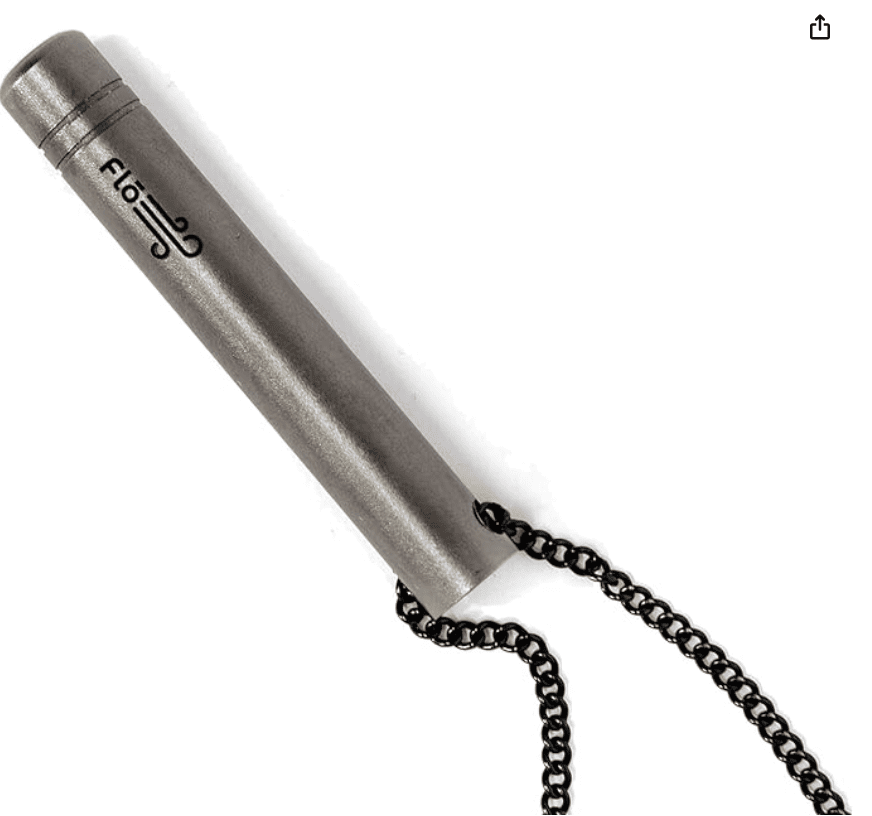How To Deal With A Manic Episode
How To Deal With A Manic Episode
- Recognize the signs
- Reach out for help
- Try to be in a safe, calm environment
- Focus on breathing and relaxation
- Avoid stimulants
- Engaging in physical activity like a walk or light exercise can help
- Seek medical attention if necessary
Treatment For Manic Episode
- Medications
- Talk therapy
Identify The Triggers Of Your Manic Episodes
- Maintain a daily record of your moods, sleep patterns, activities, and life events
- Look for patterns
- Be aware of stressors
- Certain medications can trigger manic episodes
- Some people experience mood changes with the seasons. Notice if your mood tends to shift with changes in the weather or amount of daylight.
- A mental health professional can help you
- Be aware of thought patterns
Manic episodes are emotionally high periods of bipolar disorder. The severity of a manic or depressive episode can help a mental health professional to determine the type of bipolar disorder you have. In this article, we'll teach how to deal with a manic episode.
Tips on how to cope with a manic episode
Although future manic episodes can be prevented, you can create a strategy to better manage your manic symptoms when you suspect a manic episode is about to begin and prevent it from getting worse.
In the spur of the game, you probably won't recognize you're experiencing a manic episode if you suffer from mania. So perhaps preparing ahead of time is the best approach to deal with the condition. [1]
Here are some tips to deal with a manic episode:

Avoid stimulations that worsen your mania
Alcohol, illicit drugs, and prescription medications that alter mood can all influence a manic episode and have an impact on how quickly you recover. You can keep your emotional equilibrium by abstaining from these substances.
Additionally, places that are loud and bright should be avoided. Instead, a calm and soothing environment is suitable. Furthermore, reduce your social interactions to avoid becoming overstimulated and thrilled.[2][3]
Stick to schedules
Even if you're not exhausted, go to bed at a specific time. Maintain consistent mealtimes, medication schedules, and exercise schedules. Good sleeping patterns can help in coping with manic episodes.
Other tips
Other helpful tips include:
- Reduce your social interactions to avoid becoming overstimulated and thrilled.
- Any significant life decisions and large purchases should be postponed.
- Avoid persons and settings that could persuade you to use recreational drugs or consume alcohol, or make other unwise or risky decisions.
- When experiencing a manic episode, think about choosing someone to handle your funds.[4]
You can also see how to talk to someone with bipolar disorder in How To Talk To Someone Who Is Bipolar.
How to involve family and Friends in understanding your mania
It's crucial to be open and honest with your loved ones and closest friends because they play a major role in your healing. Here's how to get them involved[5]:
Tell your loved ones and friends what you find and don't find useful
Let your friends and family know, for instance, if you would value a kind reminder to take your daily prescriptions or check in to see if you are sleeping better. Conversely, if you don't want to constantly be questioned if your current level of enjoyment is a sign that you're going through a manic episode, talk about it.
If you are unable to identify your triggers, approach your family and friends for assistance
Your loved ones might be able to identify triggers that you miss. Inquire about any patterns or observations they may have made regarding the timing of your episodes. Schedule a time to see your medical professional as soon as you see an early sign. You might or might not need to change your medicine. However, you should be vigilant because your symptoms could quickly change.[6]
Feel free to them how you feel
Describe how you feel in terms of your symptoms. Your condition will be clearer to your loved ones and friends.
Don't be scared to ask for help
Tell your family and friends what kind of assistance you need from them and when. You might think you can manage on your own at times. Everyone will benefit from being able to tell the difference. We would also suggest online therapy.

How to treat your mania (manic episodes)
Medication, talk therapy, self-management, and family and friend support are all used to treat manic symptoms.[7]
Medications
Your doctor may recommend antipsychotic drugs, such as aripiprazole (Abilify®), lurasidone (Latuda®), olanzapine (Zyprexa®), quetiapine (Seroquel®), or risperidone (Risperdal®) if you only experience mania. Your doctor may add a mood stabilizer if you have mania as a symptom of a mood disorder. Lithium, valproate (Depakote®), and carbamazepine (Tegretol®) are a few examples.
Valproate shouldn't be provided to people who can become pregnant since it can increase the risk of birth abnormalities and learning difficulties (if you are pregnant or plan to become pregnant, let your provider know). Anti-depressants are also occasionally administered.[8][9]

Talk therapy/psychotherapy
Numerous strategies are used in psychotherapy. If you have been diagnosed with bipolar I disorder, you should speak with a online therapist during psychotherapy who will assist you in identifying and resolving potential triggers for your hypomanic or manic episodes.
You may benefit from cognitive behavioral therapy if you want to alter your false beliefs about who you are and how the world works. Family therapy is also crucial because it helps your loved ones understand your behavior and what they can do to support you. [10]
How to determine your specific form of bipolar disorder
Bipolar disorder is characterized by emotional highs (manic or hypomanic episodes) and lows (depressive episodes).[11]
Manic (period of mania) and hypomanic (period of mild mania) episodes are seen in various forms of bipolar disorder. Hence, it's important to know your specific form of bipolar disorder to learn how to manage your manic episodes better.[12]
Bipolar 1 disorder
Bipolar 1 disorder is characterized by manic episodes lasting at least seven days or by manic symptoms that are so severe that the individual requires emergency hospital treatment. Additionally, depressive episodes often happen and linger for at least two weeks. Depressive and manic symptoms coexisting at the same time during an episode of depression are also possible.[13]
Bipolar 2 disorder
Bipolar 2 disorder is characterized by a sequence of hypomanic and depressed episodes, but without the severe manic episodes that characterize bipolar 1 disorder. When you experience depression, you could feel melancholy or hopeless and stop enjoying or being interested in most activities. You might also experience mild mania or hypomania (a less severe form of mania), which can make you feel euphoric, energized, or excessively irritable. The ability to think, energy levels, activities, judgment, and behavior can all be impacted by these mood changes.[14]
You can read about depression in our Depression: Eye-Opening Truths That Will Prove Helpful.

How to identify the triggers of your manic episodes
Each person has different triggers for manic episodes. You'll need to develop some investigative skills, keep an eye on your emotions (maybe even maintain a "mood diary"), and start keeping track of how you feel both before and during an episode. To assist you to determine your triggers, consult your family and friends who you trust and regularly interact with. They may be more able to identify deviations from your regular conduct than you do because they are outside observers.[15]
Knowing your triggers can help you avoid episodes altogether, minimize their impact, or help you prepare for them.
A few typical triggers to be aware of are[16]:
- A very stimulating circumstance or setting, such as lots of noise, bright lights, or large crowds.
- An important life change, such as divorce, marriage, or job loss.
- Inadequate sleep.
- Alcohol or illegal drugs are used for recreational purposes.
How to recognize the warning signs and symptoms of a manic episode
Despite being two different types of events, hypomania and mania share the same symptoms. The following early signs are present in a manic or hypomanic episode[17]:
- Having an unusually high amount of energy or activity.
- Feeling ecstatic or exceptionally joyful or enthusiastic.
- Feeling rested despite not sleeping or simply having a few hours of sleep.
- Being overconfident in oneself and believing oneself to be unbeatable.
- Being friendlier than normal. talking so quickly and incessantly that no one can cut them off.
- Having a "flight of ideas," or having a lot of thoughts on many different subjects at once.
- Being easily distracted by unimportant or unrelated things.
- Being obsessed with and completely absorbed in an activity.
- Displaying purposeless movements, such as pacing around your home or office or fidgeting when you’re sitting.
- Showing impulsive behavior that can lead to poor choices, such as buying sprees, reckless sex, or foolish business investments.
A person suffering from a manic mood episode can have a distorted view of reality called psychosis, with symptoms such as hallucinations, delusions, and confusion also seen in manic episodes of a manic episode.[18]
Conclusion
When you have manic symptoms, such as mood swings and an extraordinary amount of energy and activity, problems might arise in your social life, career functioning, and home life. If you experience severe delusions and hallucinations or if you need to be kept from hurting yourself or others, you might need to be hospitalized.
Understanding mania, its symptoms, your unique triggers, and effective management techniques for manic episodes are crucial. Mania can be managed with the assistance of your family and friends, medication, talk therapy, and support groups.
Keep in touch with all of your medical professionals, especially while you are experiencing manic episodes. Your doctor will want to see you and could need to alter the dosage or frequency of your drugs.
FAQ
What is acute mania?
The manic stage of bipolar I disease is known as acute mania. It is described as having an incredibly erratic ecstatic or irritated mood, excessive activity or energy level, overly quick thinking and speaking, risky behavior, and a sense of invincibility.
What is unipolar mania?
Unipolar is an uncommon mental illness characterized by only enthusiasm, excessive activity, or energy level, and euphoric feelings.
Can my bipolar I illness or bipolar II disorder diagnosis be changed?
No. Even if you never experience further manic episodes or a psychotic event (delusions or hallucinations), once you have been diagnosed with bipolar I disease, your diagnosis cannot be changed to bipolar II condition.
References
- Here to Help: What can I do to prevent future manic episodes?
- Mental Health: The relationship between mental health, alcohol and illicit drugs
- Elevate Psychiatry: TRIGGERS FOR MANIA
- Psych Central: What to Know About Manic Episodes
- HealthyPlace: The Role of Family and Friends in a Bipolar Person's Life
- HealthyPlace: The Role of Family and Friends in a Bipolar Person's Life
- Verywell Mind: What Is a Manic Episode?
- WebMD: Medications for Bipolar Disorder
- Gov.UK: Valproate and risk of abnormal pregnancy outcomes
- Mayo Clinic: Bipolar disorder
- Mayo Clinic: Bipolar disorder
- PsychCentral: Types of Bipolar Disorder
- WebMD: Bipolar I Disorder
- WebMD: Bipolar II Disorder
- Cleveland Clinic: Mania
- PubMed: Triggers of mania and depression in young adults
- WebMD: Warning Signs and Symptoms of Bipolar Disorder
- Medical News Today:Bipolar psychosis: What you need to know
⚠️ Disclaimer: The content of this blog is for informational purposes only and is not a substitute for professional medical advice or treatment. Consult a qualified health professional for any medical concerns.


